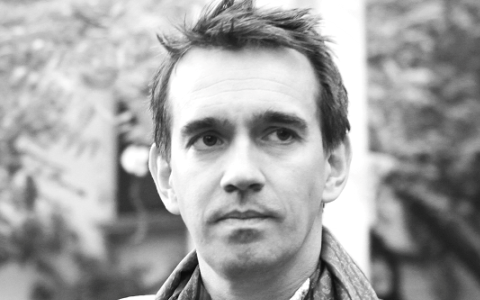ANALYSIS: Religion and Language in Britain Today
by - 10th June 2015

AS political debates around immigration become increasingly fierce, the public perception of migrant communities in the UK seems to become ever more hostile.
In fact, both religion and language – closely connected areas of human identity – have become areas of considerable contention over the past few years.
What drives these narratives is not the destruction of British culture but a fear and closed-mindedness towards other cultures in British society today.
According to the 2011 census, more than four million people in England and Wales speak a language other than English as their main language, yet just 0.3% of the population – 138,000 people – are actually unable to speak English.
These figures suggest that speaking a language other than English is an active choice, rather than a result of individuals being unable to communicate effectively in the UK’s national language.
Dr. Peter Frankopan, Senior Research Fellow at Worcester College, Oxford, is not surprised by these figures.
‘Whether first or second or even third generation immigrants, people may be more or less religious in a British context than they would’ve been in their home context,’ he says.
‘Suddenly it becomes important to connect, to remember your common shared past. If you come from abroad and settle, keeping hold of your language base is an important part of remembering where you come from.’
Frankopan’s point is echoed in the experience of 23-year-old Sufiyan Siraj Kala, a Sunni Muslim, who was born in India and moved to the UK when he was less than a year old.
‘Some of our community probably don’t appreciate the impact that language and the etiquettes of a certain language have had on our personal and social makeup,’ he says.
‘When I was a child, our teachers in Madrassah (Islamic school) delivered lessons and communicated with us in Gujarati or Urdu.
‘It was important for me to be able to understand those messages of spirituality, human nature and religious obligation.’
A shared language and faith combined has certainly been shown to bring communities together and create social support networks in the way Kala describes.
This is even more important for those living as part of migrant circles in Britain today.
‘When I left India, language helped me to unite with people of the same religion. It helped me avoid loneliness,’ says Priyanka Kaneria, 28, who was born in Bangalore and now lives in Crawley.
‘When you are in another country, speaking with a stranger in a language you both understand, it instantly connects you.’

Frankopan believes that religion and language are inextricably linked for these groups in Britain – but not necessarily more so than other cultural factors.
‘Historically, religion spread because of language and because of families, and so [the communities we see today] are pre-existing communities that adopted religion many thousands of years ago in lots of cases,’ he explains.
‘In the distinction between language and religion, we’re looking at interlinked communities who have common identities, common marriage bonds, common family ties, common languages.’
Language undoubtedly forms a significant part of personal, social and cultural identity for those with religious faith, and these interconnected traditions of religion and bilingualism, or sometimes multilingualism, are especially strong in family groupings across the UK.
‘My religion is an important aspect of my identity and spirituality, so for me, it goes without saying that I will teach my children to speak the language associated with it,’ says Muslim Akeela Bhattay, 31, who speaks Gujarati and Urdu, as well as reading and writing in Classical Arabic.
She grew up in Birmingham and currently lives in London.
Bhattay is far from alone in this perspective, as shown in a 2013 study by the University of Wales in Aberystwyth.
The research found that while some second-generation Punjabis in Britain are rethinking their traditional customs in areas such as gender equality and arranged marriage, they still transmit core values such as religion, mother tongue and familial spirit to their children.
The rise of parties like UKIP has created mainstream anti-immigration rhetoric that looks negatively on the continuing of such religious and linguistic heritage – and it’s making British society more inward-looking than it’s ever been before.
‘British diplomats and people who lived in Sudan or Pakistan were historically famous among their European peers for bothering to learn the language of the people they were living with,’ Frankopan says.
‘Brits were much better at speaking other languages themselves 100 years ago.
‘Today, we’re much less interested in the world around us, which is a funny thing given the impact of globalization.’
But Frankopan believes that it’s perfectly possible for Britain to adopt a more positive approach to cultural difference again, especially to those migrant communities who the media seem to stigmatise at every opportunity.
‘Successful, confident societies are able to absorb that difference and diversity confidently because they generally feel that people will want to be more like them in due course,’ he explains.
‘Eventually people will learn to play cricket, they’ll want to play for our football, and they’ll want to read Shakespeare.’
To progress as a nation, it’s vital for Britain to become more accepting of the language- and faith-based traditions of the groupings that make up its diverse society.
And Frankopan suggests looking to Britain’s own history and heritage for inspiration.
‘In some respects, today’s immigrant communities are similar to the British Isles of 100 years ago. We would all do well to remember that.'
LAUREN Razavi is a features journalist and foreign reporter for titles such as The Guardian, New Statesman and VICE. Read more of her work via laurenrazavi.com and follow her on Twitter @LaurenRazavi.
